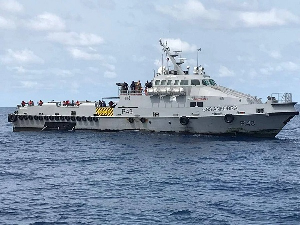Ms Josephine Nkrumah, Chairman of the National Commission for Civic Education (NCCE), has advised Ghanaians to cherish and hold dear the tenets of independence to protect the peace the country is enjoying.
Describing the independence gained from colonial oppression over 63 years ago as a great and valuable event in the life of the people, she said Ghanaians must help to collectively build the nation, saying, “We all have a role to play in nation building”.
Speaking to the Ghana News Agency in an interview in Accra, Ms Nkrumah said as Ghana marked its 63rd independence anniversary being observed on the theme: “Consolidating Our Gains”, there was the need for the citizenry to imbibe the values of hard work, integrity, honesty and discipline, “so we can together, develop the country”.
She said there should not be any moment where anybody would think of breaking the country and disturbing the peace of the nation.
Ms Nkrumah described the attainment of independence as “a moment where Ghana rid itself from colonial rule and began to shape our destiny, understand and implement self-management of our resources, governance and the role of citizenry in nation building”.
She recounted that prior to Ghana’s independence, what existed in the country, was a systemic threat to the identity of Ghanaians and having the ability to govern ourselves as a people”.
“So when we speak about the independence in Ghana, we are looking at being able to rule over ourselves and shape our destiny in order to influence and impact generations to come“.
She said the gains of independence had been enormous and that it had served the people very well “but there has been a slow march in terms of attaining our collective vision as a nation”.
However, Ms Nkrumah said, people should look at the flip-side and determined for themselves how they would have fared “if we were still under colonial rule”.
She said countries like South Africa, which were under colonial rule, notably the Apartheid, for a long time and only gained independence not too long ago, was left with so much resentments, rancor and bitterness which continued to harm the people in many ways.
Notwithstanding the checkered history of military interventions, Ms Nkrumah praised Ghana as one of the few nations in sub-Saharan Africa that had been able to manage “our independence, our peace and the transition from one government to the other and from one political party to another”.
“These are not things that we should at all underestimate” she stated.
“Look at our neighbouring and surrounding countries, can they boast of the same? We see modern dictatorship. But in Ghana we have a Constitution and an electoral system, which even with its difficulties, we strive to have a fair and transparent elections, a requisite for building peace and social cohesion of the country, Ms Nkrumah said.
General News of Saturday, 7 March 2020
Source: GNA













